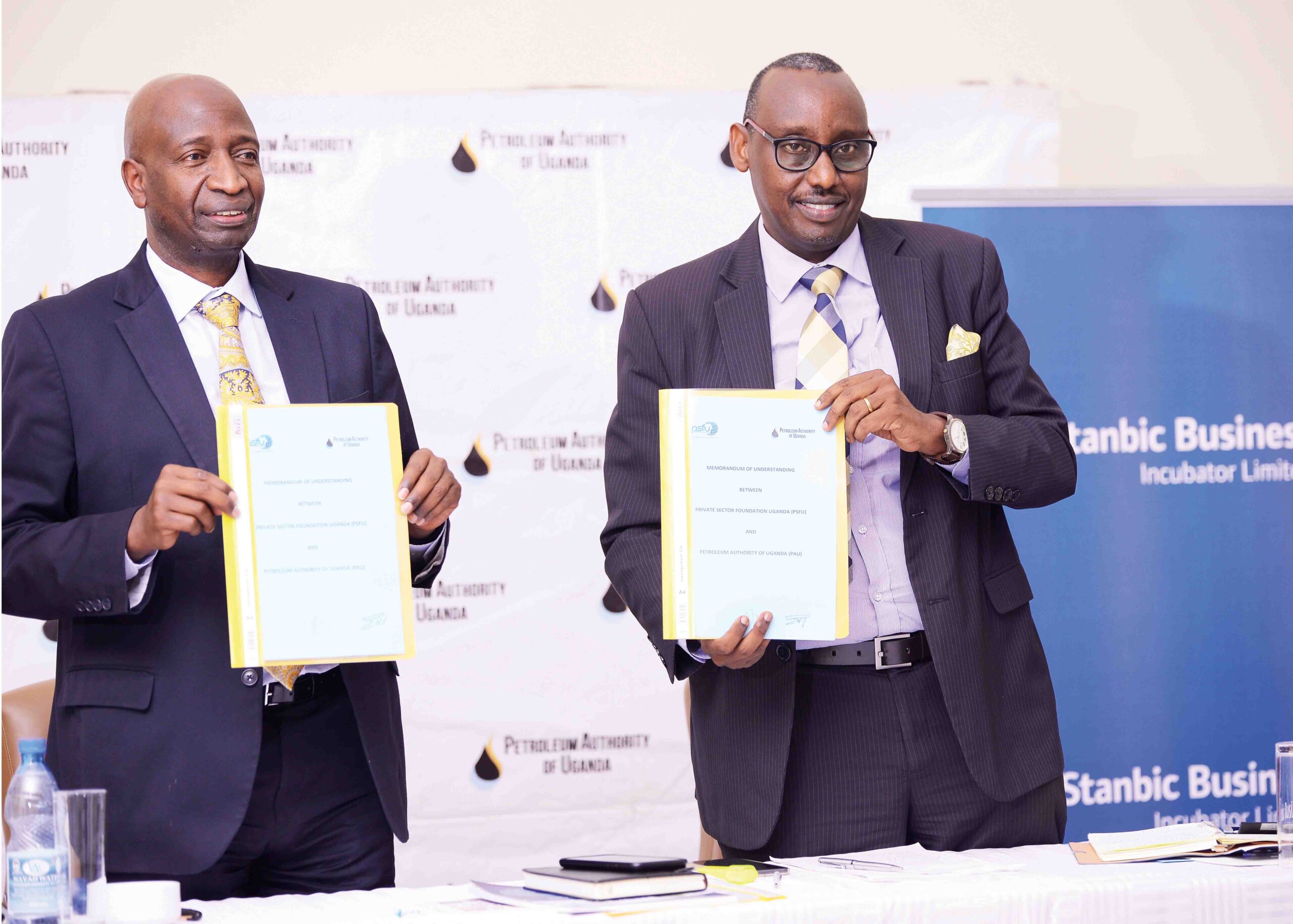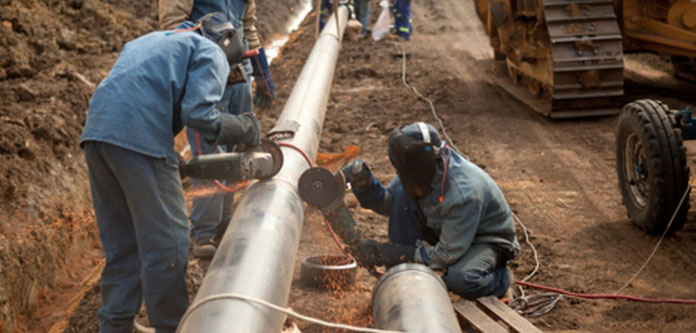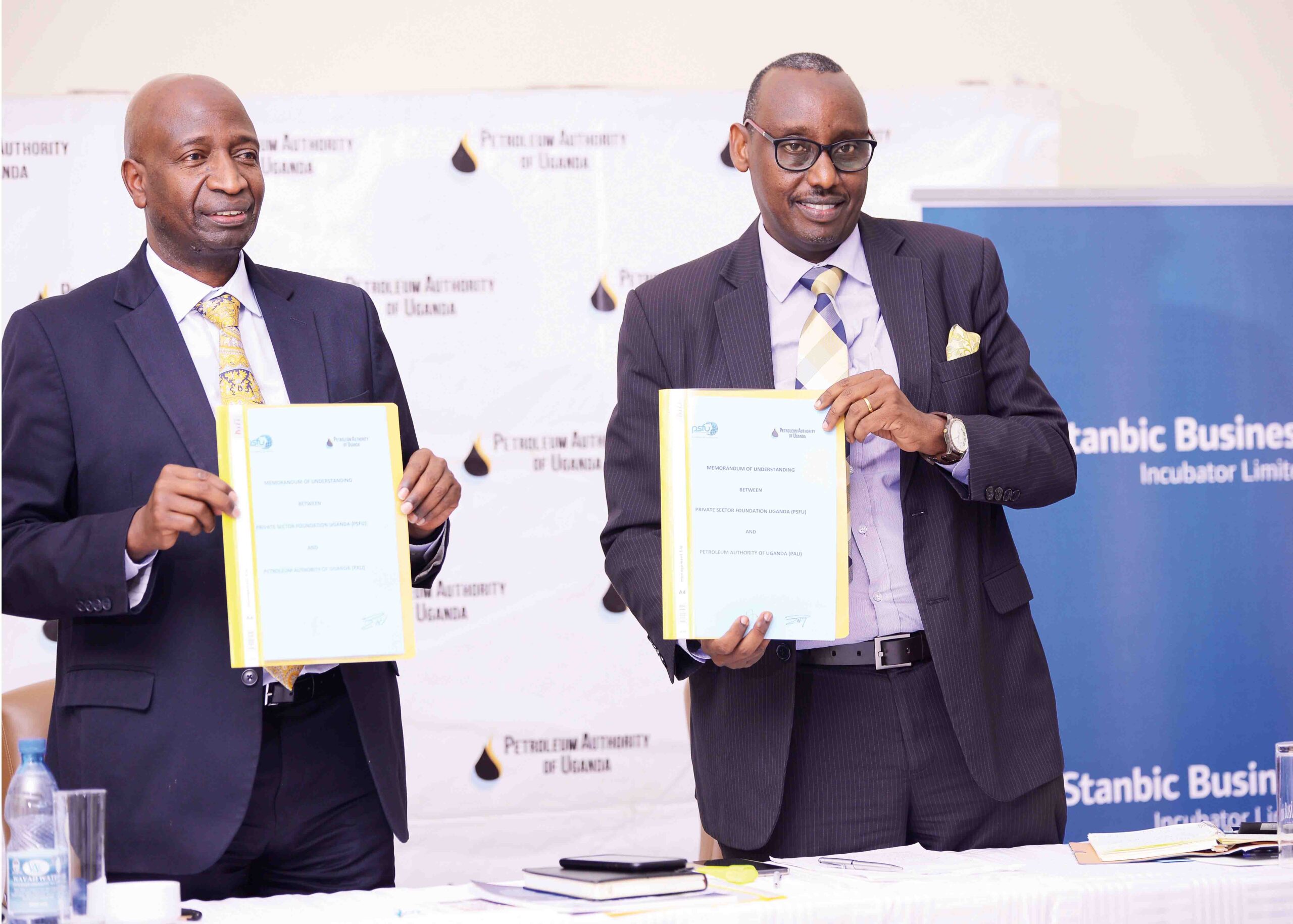By Lydia Labanya
In a move to build capacity of over 200 Ugandan enterprises along the crude oil pipeline route, the Petroleum Authority of Uganda (PAU) and Stanbic Bank Incubator Limited (SBIL) have signed a contract to supply Uganda’s Oil and Gas sector and other related opportunities.
While addressing the press at Mestil Hotel Kampala recently, Ernest Rubondo, the Executive Director of PAU, acknowledged the need to consider participating enterprises based on merit.
“These investments present enormous opportunities for value addition in the country, and there are many opportunities for Ugandan enterprises to participate,” he said.
He added: “However, taking up the opportunities will require adequate preparation and the enterprises will have to demonstrate that they have the required capacity to deliver against sector requirements.”
The consortium of partners, which is led by SBIL, includes Conexus Oil & Gas, Solid Rock Life & Business, and Living Earth Uganda, will carry out the training of over 200 Micro, Small and Medium Scale Enterprises (MSMEs) in the 10 districts along the East African Crude Oil Pipeline (EACOP) route.

The districts are Hoima, Kikuube, Kakumiro, Kyankwanzi, Gomba, Mubende, Lwengo, Sembabule, Kyotera, and Rakai.
The latest development comes following the announcement of the Final Investment Decision (FID) for Uganda’s oil and gas projects on February 1, 2022.
The FID announcement signifies the commitment of the oil companies to invest close to $10 billion to develop Uganda’s oil and gas resources, through the implementation of the Tilenga Project in Buliisa and Nwoya districts; the Kingfisher Project in Hoima and Kikuube Districts (approximately $6-8bn); and the East African Crude Oil Pipeline(EACOP).
Rubondo added that the sector has moved from the season of scarcity, to a season of plenty of opportunities in the oil and gas project in Uganda, and Ugandan companies must recognise this and start working as partners rather than competitors.
The SBIL CEO, Tony Otoa, is pleased to lead this consortium of partners which brings a lot of value to this project.
“Beyond training these SMEs, we will offer mentorship, opportunities, access to finance and markets.
“Therefore, I can confidently say that this signing is our way of ensuring Uganda’s growth, and key to this is supporting local enterprises by building their capacity to ensure they compete for contracts,’’ Otoa said.
Uganda’s advantage
At the same event, the PAU also signed a Memorandum of Understanding (MoU) with the Private Sector Foundation of Uganda (PSFU) aimed at enhancing private sector participation in the oil and gas sector.
Stephen Asiimwe, the Chief Executive Officer at PSFU, revealed that the partnership was timely, as the private sector was grappling with solving the problem of youth unemployment.
“Through this partnership, the private sector will not only bring on board the necessary skills for capacity building, but we will also harness all the opportunities presented by the huge investment in the oil and gas sector, to enhance Uganda’s economic development,” Asiimwe said.
He added that the oil and gas sector is expected to increase Uganda’s GDP by 22 per cent by the end of the construction phase and will employ over 14,000 people directly and 45,000 people indirectly.
“As PSFU, we anticipate that at least 30 per cent of the total expenditure on investment in Uganda will be retained and this, we believe, will significantly change the private sector,” he added.

Different roles
PAU’s mandate is to monitor and regulate the exploration, development and production, together with the refining, gas conversion, transportation, and storage of petroleum in Uganda.
This includes ensuring that petroleum operations in Uganda are carried out in accordance with the relevant laws, regulations, guidelines and statutes in line with international best practice for the petroleum industry.
In addition, the authority is required to monitor national participation in the sector.
On its part, SBIL trains and facilitates MSMEs to develop resilient businesses, access ready markets, finances, and other business support resources.
Since its founding in 2008, SBIL has trained 3,234 Ugandan entrepreneurs attached to 2,007 SMEs.
The business development training is one of the three major components of the MSMEs business linkages project, along the EACOP project being implemented by the Petroleum Authority of Uganda, with support from the African Development Bank.
+++++++++++++++++++++++++++++++++++++++++
Subscribe to our website and be the first to receive great Christian news, health information, pastoral guidance, environment, farming and many others. Also, Like and follow us on Facebook at Good News UG.






















